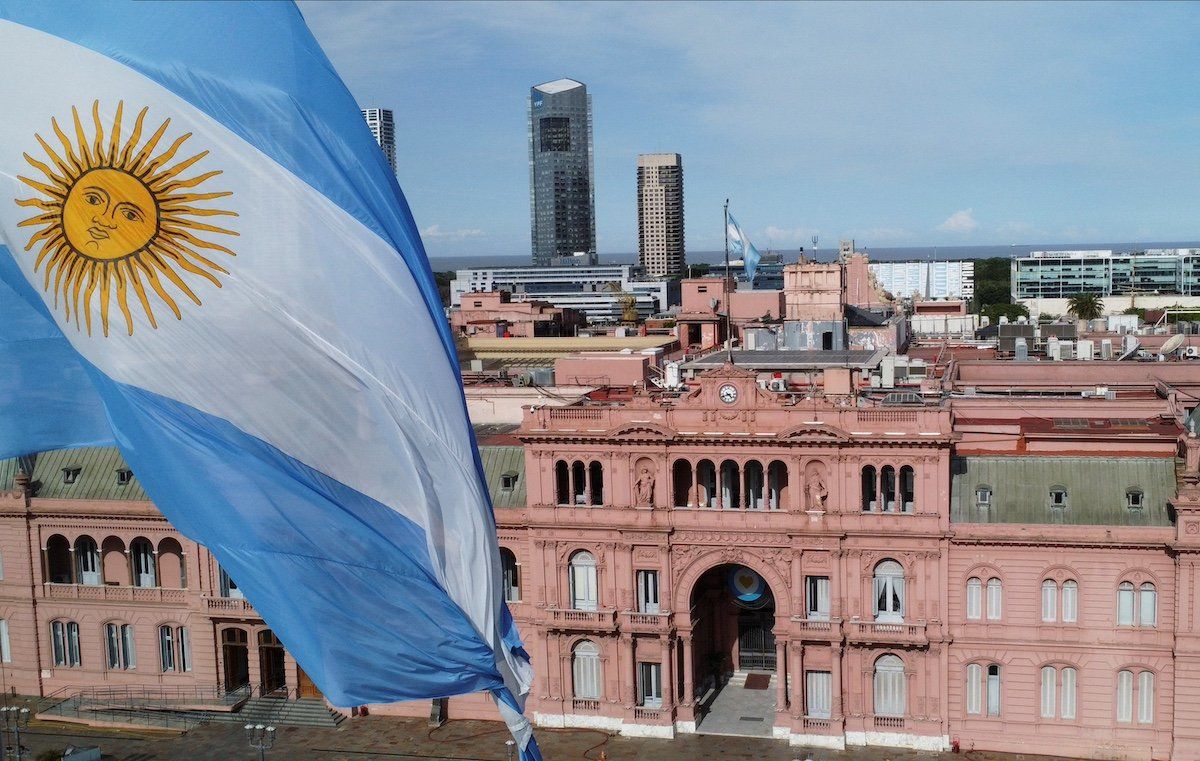Would you promote an economy minister to be president if he’d delivered 140% inflation? You might if the other option was “shock therapy.” That’s the choice facing Argentines this Sunday as they vote in a runoff election between Sergio Massa, the economy minister of the ruling party, and libertarian wildcard candidate Javier Millei, who wants to “blow up” the country’s political lethargy.
Polls show that the word most often associated with Milei is “crazy,” but that hasn’t hurt him in the topsy-turvy world of Argentine politics.
Milei’s combative public persona and radical proposals to fix Argentina’s perpetually floundering economy – including dollarizing the economy, shutting the central bank, and slashing government spending by 15% of GDP – appealed to voters disaffected with politics as usual.
He has risen rapidly from a fringe outsider to taking second place in the first round of voting – Milei garnered 30% of votes to Massa’s 37%, and while Massa did better than expected, he fell short of winning outright.
Pre-election polls point to a close contest in the second round. One particularly effective tactic for Massa has been reminding Argentines accustomed to extensive subsidies how much more their bus commute or clinic visit would cost if Milei fires up his fiscal chainsaw. Both campaigns have dived headfirst into artificial intelligence, with an especially memorable deepfake showing Milei discussing how a free market for human organs would work.
If Milei does come out on top, he'll lack the majorities in Congress he needs to pass his boldest proposals. Policy paralysis is not a recipe for taming inflation. Massa would have a freer hand with the largest factions in both houses and has promised to re-engage with the International Monetary Fund, but he’s not likely to systematically reform the state to put the budget on a solid footing. For the 40% of Argentines who have slipped into poverty, that means money is likely to stay tight whoever wins.